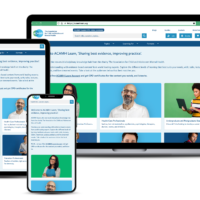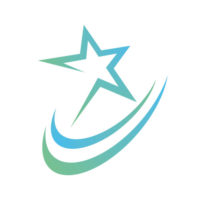Blog
-

How to Change your Password
It can be frustrating when you need to change your password, however we want to make this as stress-free as possible with our handy ‘how to’ guide.
Read more -

A heartfelt thank you to all our Reviewers
In addition to our latest Top Reviewer lists for our three journals, we wanted to express our gratitude to every single reviewer from 2023 for their invaluable contributions to the JCPP, the CAMH journal and JCPP Advances, and the wider academic community as a whole.
Read more -

Congratulations and Thanks to our Top Reviewers
To celebrate Peer Review Week 2024 and show our gratitude for the ongoing support and service of our reviewers to the journals, and the wider scientific community, we want to extend a heartfelt thank you to all peer reviewers.
We are proud to present the list of top reviewers for the 2023 calendar year.
Read more -

AI for Peer Review
Peer Review Week 2024 (23-27 September 2024) explores the theme “Innovation and Technology in Peer Review.” In light of this, Nicholas Fabiano explores the role of Artificial Intelligence (AI) in Peer Review in this fascinating blog.
Read more -

ACAMH Learn – a new, free online CPD resource for those working in child and adolescent mental health
The Association for Child and Adolescent Mental Health (ACAMH) has launched ACAMH Learn acamhlearn.org, a new, free online learning platform offering video and podcast content from more than 200 world-leading mental health experts.
Read more -

University Students and Imposterism: Its Relationship with Happiness, Self-Efficacy, and Perfectionism
Imposter syndrome is a pertinent issue in academia. A recent article from May 2023 titled “The imposter phenomenon and its relationship with self-efficacy, perfectionism and happiness in university students” (Pákozdy et al., 2023) sheds light on this pressing issue. This blog aims to summarise the key findings of the article, discuss its strengths and limitations, evaluate its evidence, and provide a personal perspective on how this evidence can inform practice and future research.
Read more -

Celebrating the Future of CAMH: ACAMH Awards 2024 Long list
It is our pleasure to announce the long list of nominees for the 2024 ACAMH Awards. Congratulations to all the 2024 nominees.
Read more -

Psychotherapies seem to be especially effective in low- and middle-income countries
Youth psychotherapies appear to be about twice as effective in low- and middle-income countries (LMICs) compared to high-income countries. However, disproportionately little research on youth psychotherapies has been conducted in LMICs; 90% of the world’s youth live in LMICs, but only 5% of randomized controlled trials of youth psychotherapies have been conducted in LMICs to date. Therefore, there is great need for more research on psychotherapies for youth in LMICs and for funding directed to LMIC-based investigators, clinicians, and organizations. We do not know why psychotherapies appear more effective in LMICs, but discovering why could help to identify ways of improving youth psychotherapies worldwide.
Read more -

The Sustainability of the Incredible Years Teacher Classroom Management Programme: Insights from UK Primary School Teachers
The current youth mental health crisis highlights the need for preventive and early intervention strategies like the Incredible Years programmes. The Incredible Years Teacher Classroom Management programme has shown positive effects on teachers’ classroom management strategies and pupil mental health. In this blog, we discuss teachers’ views on the sustainability of the programme, necessary to maintain its desired benefits in the longer term.
Read more -

JCPP Advances goes from Strength to Strength with Scopus
ACAMH are delighted to announce that our publication JCPP Advances has been accepted by Scopus, a comprehensive abstract and citation database launched by Elsevier. Scopus offers various analytics tools that allow journal editors and publishers to track their journal’s performance, analyse trends, and make data-driven decisions to improve the journal’s quality and impact.
Read more